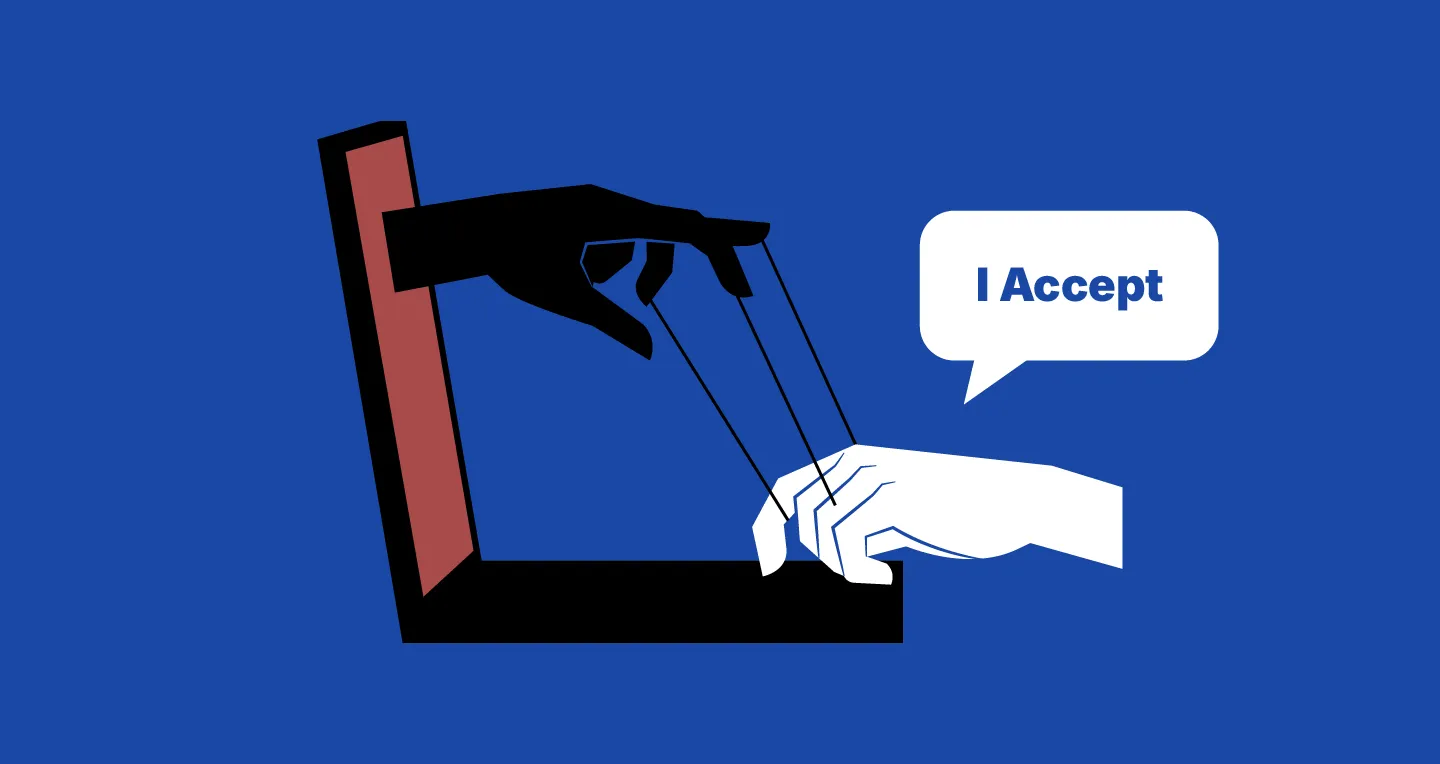
February 13, 2025, to strengthen consumer protection Electronic Commerce Act AmendmentsThis has been implemented. This revision is particularly focused on regulating deceptive commerce practices using dark patterns (Dark Patterns). The key is to require prior consent when increasing subscription payments or switching to a paid subscription, and prohibit unfair marketing techniques that induce consumer error or carelessness.
Require prior consent when increasing subscription payments or switching to a paid subscription
Previously, when the fee was raised while using a subscription service, or when the fee was automatically converted to a paid fee after the free trial ended, the payment was often made without the consumer being clearly aware of this. In this amendment, in order to prevent this Obligations to give prior consent and noticeIt has been enhanced.
Act on Consumer Protection in Electronic Commerce, etc. (Abbreviation: Electronic Commerce Act) Article 13 (Provision of information on identity and transaction conditions)
⑥ If the regular payment for goods, etc. is increased or the goods are supplied free of charge, the mail order vendor shall obtain the consent of the consumer regarding the date and time of the increase or conversion, the price before and after the change, and the payment method before and after the change within the period determined by the presidential decree before the increase or conversion is made, and notify the consumer of the conditions, methods, and effects for canceling or canceling the increase or conversion.
According to Section 13 (Provision of information on identity and transaction conditions) (⑥) of the Electronic Commerce Act, mail order vendors, before regular payment payments increase or free services are converted to paid services, Consumer consent must be obtained within 30 days I will. Also, you must clearly state the price before and after the change, payment method, and cancellation method.
- Notify consumers 30 days in advance if subscription fees increase or switch to billing
- Provide a clear explanation of the changes (pricing, payment methods, cancellation procedures, etc.)
- Apply changes after obtaining prior consent from the consumer
This measure is intended to prevent damage caused by unexpected charges to consumers and increase transparency in the use of subscription services.
5 prohibited dark pattern types
Act on Consumer Protection in Electronic Commerce, etc. (Abbreviation: Electronic Commerce Act) Article 21-2 (Prohibited acts in the operation of an online interface)
① An e-commerce business or mail order vendor refers to an online interface (software such as a website or mobile application) as an intermediary between consumers and businesses. When operating (as follows), you must not engage in any of the following acts.
1. On the first screen of a display or advertisement informing consumers of the price of goods, etc. through a cyber mall, it refers to the total amount that must be paid by the consumer to purchase and use the goods (including the costs required to provide the goods in addition to the price of the goods, etc., in addition to the price of the goods, etc. The act of attracting a consumer or making a deal with a consumer by displaying and advertising only a portion of the amount (as follows). However, this excludes cases where there is a justifiable reason why the total amount cannot be displayed or advertised, and the reason is notified to the consumer in accordance with the Prime Minister's Decree.
2. The act of inducing a consumer to subscribe for a transaction of other goods, etc. by providing an optional item to ask whether they are willing to subscribe to the purchase/use, membership registration, or contract signing during the purchase/use of goods, etc., or whether they are willing to subscribe, or sign a contract while the consumer directly selects whether they intend to subscribe in advance and provide optional items by providing optional items
3. When a consumer is presented with optional items relating to the purchase/use of goods, etc., membership registration, contract signing or cancellation, membership withdrawal, or contract termination (hereinafter referred to as “purchase, etc.”), it is an act of displaying significant visual differences in size, shape, and color between the choices, and falls under any of the following categories
a. Acts that may mislead consumers as if they can only select specific items
me. Acts that may cause consumers to misunderstand that they must select a specific item as a condition for making a purchase, etc.
4. Acts that interfere with a consumer's cancellation of purchase, membership withdrawal, or contract termination by any of the following methods without justifiable reasons
a. How to design procedures such as cancellation, withdrawal, and termination more complicated than procedures such as purchasing goods, signing up for membership, and signing a contract
me. A method that restricts cancellations, withdrawals, and cancellations only by methods different from methods such as purchasing goods, signing up for membership, and signing contracts
5. An act that interferes with the consumer's free decision-making by repeatedly requesting that the consumer change that choice or decision be changed through a pop-up window or the like with respect to what the consumer has already chosen or decided. However, when requesting a change in that choice or decision, the consumer is not allowed to choose not to receive such a request for a period longer than the period specified by presidential decree is excluded.
② In order to prevent acts falling under paragraph 1 and protect consumers, the Fair Trade Commission may determine guidelines to induce autonomous compliance by businesses based on opinions of transaction parties, organizations, and organizations in related fields.
1. Sequential disclosure pricing
- The act of attracting consumers by displaying only a portion of the amount instead of the total payment amount on the first screen(Example: “9,900 won per month!” (If it is promoted as, but an additional fee is charged at the time of actual payment)
2. Pre-select specific options
- The act of providing a specific product or additional service in a pre-selected state before the consumer directly selects it(For example, if “Auto Sign Up” is the default setting)
3. Incorrect hierarchy
- The act of inducing consumers to misselect specific options by manipulating button sizes, colors, etc.(For example, if the “Pay” button is large and clear, and the “cancel free trial” button is small and blurry)
4. Interfering with cancellations and withdrawals
- Registration and payment are simple, but cancellations or cancellations are designed to be difficult(For example, when signing up is just a click away, but cancellation is only possible by contacting the Customer Service Center)
5. Repeated interference
- The act of continuously inducing a consumer to change even after making a specific choice(For example, when trying to cancel a membership, asking for reconfirmation several times or pop-ups are displayed repeatedly)
As a result, the following forms of communication are necessary:
- The consumer is on the first screen Display the total payment amount so you can clearly see
- Apply the opt-in method (To prevent additional services from being automatically selected if consumers don't choose them themselves)
- Keep the difficulty level of the registration/cancellation process the same
- Respecting consumer decisions, Minimize repetitive inductive messages
Strengthening penalties for breaking the law
If you violate this amendment Penalty of 5 million won or lessYou will be charged, and in serious cases Suspension of business for up to 1 year or Imposing fines Dispositions such as these may be imposed. In particular, in the case of suspension of business, the same level of false, exaggerated, and deceptive consumer inducement was applied.
This revision of the Electronic Commerce Act is an important change to make the online shopping environment fairer and more transparent. Businesses will need to establish consumer-friendly policies in line with this, and prepare consumers to enjoy safer online transactions.
At the end of the article
This revision of the Electronic Commerce Act is not only a simple legal change, but also contains a message about restoring consumer trust in the digital environment. User experience design (UI/UX) is now an age where legal compliance and ethics must be considered beyond simple design.
Going forward, companies will continue to focus on building long-term customer relationships based on trust instead of trickier UI aimed at increasing short-term conversion rates. WTAP is monitoring and responding to these changes in the UX environment together.
.svg)






